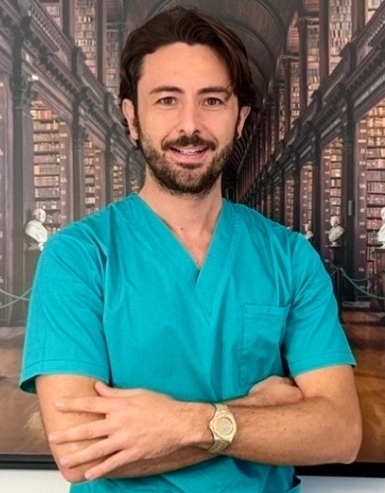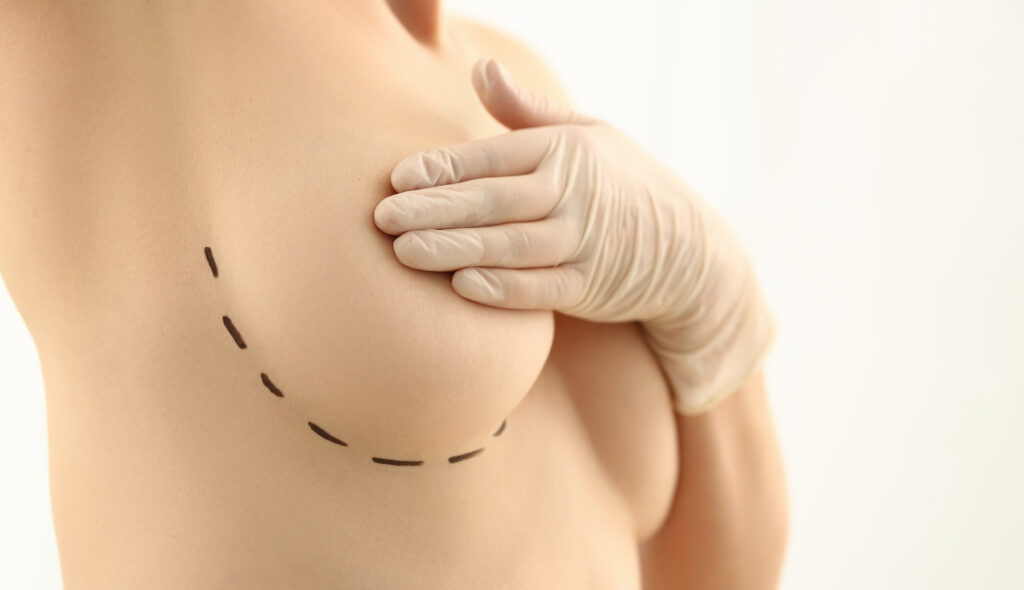Medical doctors and Surgeons
What does conservative surgery mean?
Conservative surgery represents an evolution in breast cancer treatment. This approach is connected to the concept of de-escalation therapy: limiting the number of destructive procedures on the armpit and breast to minimise the impact on the patient’s mental and physical well-being, thus achieving better outcomes from aesthetic and practical perspectives. According to Professor Alessandro De Luca, a General Surgery specialist, professor at Sapienza University in Rome, researcher at the surgery department, and scientific manager at the Association for Social Promotion “I Girasoli”, the two cornerstones of the new approach to treating cancers are multidisciplinary teams and precision medicine.
«The surgeon is no longer central to the healing process following a breast cancer diagnosis. Instead, there are different experts with varied expertise who orbit patients and represent the true core of their multidisciplinary journey – explains De Luca – Furthermore, personalised medicine has become increasingly popular. Among the therapeutic innovations is neoadjuvant chemotherapy, which involves administering medical therapy before surgical intervention, leading to better oncological outcomes and making patients eligible for less aggressive surgical treatments»
Prevention and sensitivity campaigns: How to fight breast cancer
Prevention is an increasingly common topic, and spreading knowledge on social media is gaining popularity. However, it seems that new generations are struggling to acquire necessary information.

«As of today, on a national scale, women adhering to regional screening programs have reached 60-65%, although this percentage varies among regions. This discrepancy exists because initiatives that disseminate and inform people are not uniformly present across the country» asserts De Luca. Speaking about prevention entails differentiating between primary prevention and secondary prevention.
Primary prevention refers to a series of procedures tied to behavioural hygiene and a healthy lifestyle that help reduce the risk of developing cancer and cardio-metabolic pathologies. «When women visit our clinics, we’re always eager to examine their daily activities and habits. Beyond diagnosis and treatments, behavioural advice is well-received: eating healthier food, quitting smoking, and being more active are all factors that can impact the risk of getting cancer», recalls De Luca.
Connected to primary prevention is secondary prevention. «Today, we cannot stop cancer from manifesting. We can, instead, detect it early when it’s still curable through a conservative approach – explains the professor -. Conservative surgery offers a less invasive approach that minimally impacts a patient’s psyche and physical well-being, facilitating rapid recovery».
“I Girasoli”’s projects and initiatives
“I Girasoli” is an Association for Social Promotion presided over by Dr. Benedetta Cerasani, of which Professor De Luca is the scientific manager. The association plays a pivotal role in disseminating information and educating the masses throughout the Lazio region. Their activities include secondary prevention, early diagnosis, vaccination campaigns, and treatment of the most common epidemiological pathologies such as breast cancer, HPV, and more.
«Health concerns such as behavioural disorders will be the focus of the congress to be held on May 24, during which the price of beauty will also be discussed. Through the use of social media, seeking aesthetic beauty and altering behaviour has become increasingly popular among young generations, impeding their growth», confirms De Luca.
Among the other activities carried out by “I Girasoli,” there are also those of assistance. They intervene in so-called “grey areas,” where the population struggles to access screening activities and where health information is not widely disseminated. «Among the peer counselling and assistance activities, I think of projects like the ‘Hair Bank“. A project which offers oncology patients the possibility of having a wig during their chemotherapy journey – continues the Professor -. Moreover, ‘I Girasoli’ and the President herself become drivers to accompany patients in diagnostic and therapeutic paths, providing support during chemotherapy sessions. Furthermore, simple telephone support, the ‘wireless phone’ used by healthcare workers and by Dr. Cerasani herself, allows patients to find relief, comfort, and solutions».
The importance of sports for post-operative rehabilitation
One of the projects of the “I Girasoli” association is to re-educate and rehabilitate women who have undergone breast cancer surgery through the playful-sporting activity of fencing. Thanks to this sport, it is possible to improve the functionality of the scapulo-humeral joint adjacent to the site of surgical intervention.

«Sport is fundamental at all levels and ages. It helps us face the toughest challenges in daily life and allows us to relate to and connect with other people. Therefore, it is important from an educational standpoint for patients, healthcare workers, those without illnesses, and those supporting sick people. It is a fundamental educational element that allows us to achieve often unexpected goals, highlighting the benefits of conservative surgery in the healing process. Sport brings everyone together and allows us to achieve goals that we probably didn’t even know we could reach», concludes De Luca.




































